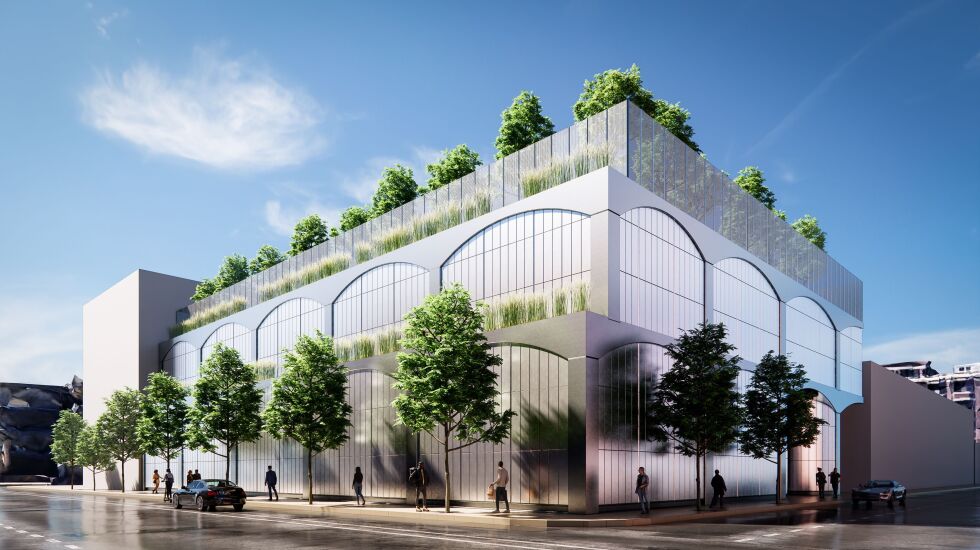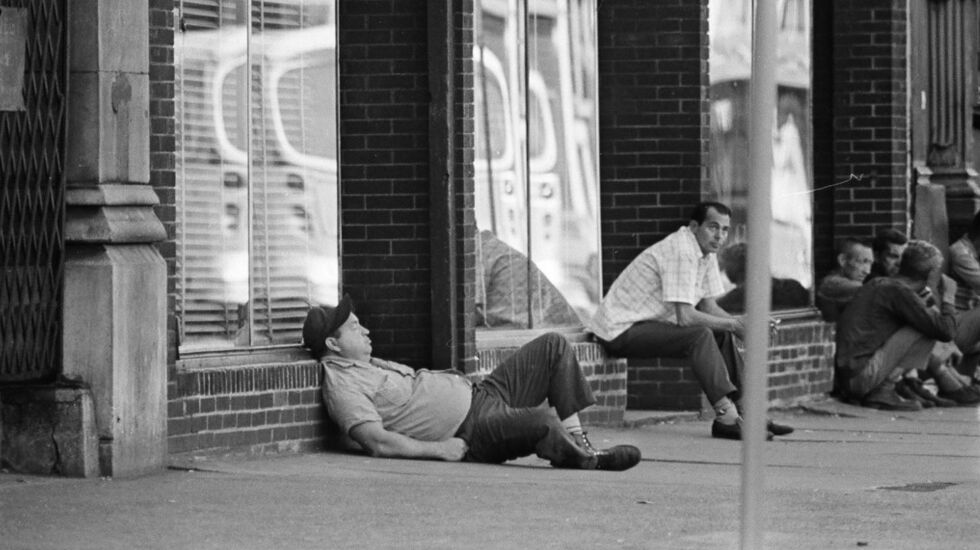
There’s a bathhouse due to be built on West Madison Street.
If you’re a Chicagoan with a few decades traversing its grid, that first sentence will conjure several images, some none too positive. Bathhouses have a long and checkered history here. So does West Madison Street, which decades ago meant Skid Row to people who knew Chicago.
This new bathhouse proposal shouldn’t cause much worry — and it’s a reminder about how everything old can be new again.
Alex Najem, founder and CEO of Fulton Street Cos., plans to build a two-and-a-half story bathhouse at the northwest corner of Madison and Morgan streets. He will lease the 40,000-square-foot building to Bathhouse, an operation based in Brooklyn, New York, that has taken bathhouses upscale, adding therapies and facilities to promote wellness in a social setting. It promises professional massages and scrubs, pools and saunas with different temperatures and a place to dine.
By opting for this development on what has been a parking lot, Najem is abandoning a prior plan for the property that called for a 10-story condo building with only 25 units. The project at 1010 W. Madison would have been an unusual for-sale venture when developers, Najem included, are otherwise building rental apartments on the Near West Side.
But he couldn’t justify the construction costs because of inflation. So he changed plans. “Madison is a great retail street,” he said. And Najem figures he’s adding an amenity the increasing number of neighbors will patronize.
He confessed he wasn’t at first keen on the bathhouse concept. “I definitely had my doubts. When the group came in town and I met them, that’s when I was sold,” he said.
If the concept doesn’t work out, Najem said he’ll still have a building with space suitable for retailers and restaurants.
He hopes to close on construction financing in a few months and start work early next year, finishing in 2025. The prominent architectural firm Gensler designed the building to include rooftop dining. No zoning change is required.
Bathhouses long ago provided material for writers such as Saul Bellow and Nelson Algren. They were an Eastern European carryover where visitors could sweat off a few pounds while maybe making business deals of various respectability. Later came gay places for hookups.
The new bathhouse version is scrubbed and refined for the health conscious, suitable for friends and family. The Bathhouse venture in Brooklyn is co-ed and advises people that while it’s OK to talk to strangers, it’s “not a place for speed dating.”
In Chicago, it will open on a stretch of Madison Street where urban renewal has long since done its thing, wrecking seedy old buildings and bringing in hipster hangouts. The old Skid Row kept a connection to yet another brand of bathhouse — public facilities that served the indigent. The authoritative Encyclopedia of Chicago said the last such operation served Skid Row and closed in 1979.
Fulton Street ranks with Sterling Bay and Trammell Crow as being among the most active developers in Fulton Market and the Near West Side, areas that still draw national attention as thriving urban markets despite pauses during the pandemic. While commercial valuations in the Loop are plummeting, demand for retail space and offices west of the traditional downtown are pushing rents higher, and more apartments are on tap.
Crime, taxes and high interest rates still loom as trouble for the Near West Side, but Najem said he sticks by a longer view. “Things take time. The hope is that everything will be better in 24 to 36 months” when major development getting started now will be delivered, he said.
Najem’s pending projects include an office building under construction at 919 W. Fulton, where Harrison Real Estate Capital will be the anchor tenant and the Gibsons group plans a restaurant. Also on his agenda are 1,300 apartments at 1200 and 1201 W. Fulton. The 1200 building would include a fitness center and awaits city approval while the 1201 building has its entitlements. Najem said he’s working to get it financed.
He said he’s bullish despite the pandemic’s extended effects on big city living. “We’re in a cycle where less is more and new construction is where the credit tenants want to be.”
His outlook doesn’t leave much room for older downtown buildings that may be worth little more than the land they sit on. “I don’t know how anybody makes sense of anything in the Loop right now,” he said.
“The Loop will endure over time but more as a neighborhood type place” with suitable retailers and open space, Najem said, suggesting Chicago might need to carve out its own Central Park by taking down towers nobody wants anymore, probably a staggering public expense. He said it might take 20 years to see even the start of radical change.
Chicagoans who think about that long enough might need a nice hot sauna to relax.








